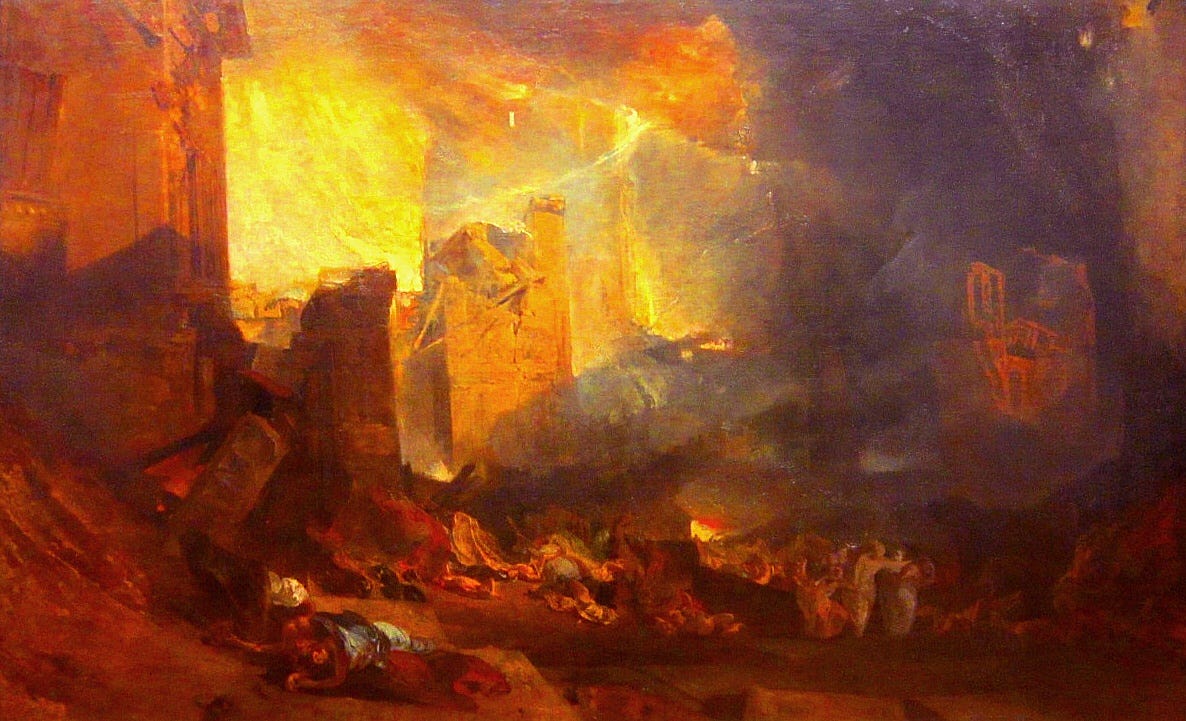Spoiler Alert: If you have not yet seen Season 8 of “Game of Thrones” and plan to do so, you may want to wait before reading this post.
“Game of Thrones” has certainly generated its share of post-finale press coverage. Unfortunately, most of it has been about viewer reaction to the resolution of the question, “Who would eventually end up sitting on the Iron Throne?” Or the pace of storytelling in the final season. Yesterday, I had a little fun with those issues myself. Following my mandatory post-episode debriefing with our daughter and one more night to sleep on it, this morning I realized the creators missed an opportunity to engage the 19.3 million viewers (live and delayed streaming) in a more important debate.
In Season 8, Episode 5, the major controversy centered on Daenerys Targarian’s “take no prisoners” approach to reclaiming King’s Landing, a theme which was reinforced at the beginning of Episode 6 when Grey Worm at his Queen’s command, slashes the throats of warriors who had been captured during the battle for the city. Her justification being the need to rid the Kingdom of anyone who had been loyal to Cersei Lannister, even if it included the murder of innocent children. Where would anybody get such an abhorrent idea?
How about the Old Testament? Not once, but three times in the first two books (Genesis and Exodus), God takes Dany-like revenge against populations he feels have not been loyal to his laws. [NOTE: I only use masculine pronouns to be consistent with the biblical narrative. Daenerys proved the desire to unleash mass destructive forces is gender neutral.] The first time is the great flood. I have always wondered why any deity would instruct his servant to save two of each animal species while showing no compassion or mercy for innocent children.
 The second iteration is at Sodom and Gommorah, pictured here. Look familiar? The only difference is God did not need dragons to obliterate a city.
The second iteration is at Sodom and Gommorah, pictured here. Look familiar? The only difference is God did not need dragons to obliterate a city.
Perhaps the biblical story which best aligns with the death of innocent children at King’s Landing is the tenth plague in Exodus, when God takes the life of Egypt’s first-born sons to break Pharaoh’s will. Only then are the Israelites freed from their bondage of slavery. When Jon Snow asks Daenerys if she has seen the burnt bodies of the children, she says it was necessary to “break the wheel which enslaved them.” Two mythological narratives which very well could have been written by the same author.
Did God snap like Daenyrus? Was this an overreaction in the heat of the moment? It’s hard to make that case when we find the descriptions of the plagues in Exodus 7:14 through 12:36. And then, having had time to reflect on his own actions, in Exodus 34:7, God states that although he will lavish steadfast love for thousands, he will, “…by no means clear the guilty, visiting the iniquity of the fathers on the children and the children’s children, to the third and the fourth generation.”
“Game of Thrones” creators David Benioff and D. B. Weiss want us to believe the problem is solved through the election of a new monarch incapable of producing heirs. As is too often the case today, those with the power to change the course of history are day traders, interested only in the next transaction. The future is about the long game.
Having said all this, what do I believe would have been a more appropriate and meaningful conclusion to a story about power, revenge and destruction? One that might have driven a more productive dialogue among fans of the show? If, when Samwell Tarly presents Tyrion Lannister with the chronicle of the competition among rival houses for the Iron Throne (conveniently titled, “A Song of Ice and Fire”), Tyrion had said, “This is old history (read our “Old Testament”). Perhaps it is time we tell a new story. One that does not glorify death and blind obedience. One that does not require a king or queen to tell us how to behave toward each other. But lays that responsibility at our own feet.” This is a dilemma every civilization from ancient times through the present has faced.
Yes, Samwell is soundly ridiculed when he suggests, “Maybe the decision about what’s best for everyone should be left to, well, everyone.” The Seven (or Six) Kingdoms are not ready for democracy. But a constitutional monarchy would have been a step in the right direction. As we know, democracy is messy and takes time to accept and appreciate.
For what it’s worth.
Dr. ESP